Ongoing conversations in organizations are more important today than ever, due to the dynamic environments in which we find ourselves. Whilst being so much more connected to the wider world has proved invaluable in so many ways, it has not been without its challenges: changes in far away countries have far reaching consequences on many scales be it large business, small business or our day-to day lives.
As the world watches developments around Syria, it is not just politicians, negotiators and military advisors, but markets around the globe in the US, UK, Australia, New Zealand that are reacting – proof that for many of our organizations, the goal posts are likely to be changing… constantly. We no longer have the luxury of relative certainty around commodity prices, market share, input costs we think we once had and yet we have to ensure that our companies not only remain viable, but thrive in this ever-changing environment. In order to do this, we must be adaptive – being nimble, flexible and adaptive requires connection and conversations: effective organizational conversations.
The problem
So what goes wrong, or seems to, so often? Let us, for example, imagine you are a manager seeking to ensure your area of responsibility continues to perform and that this, in turn, requires flexibility, innovation, and adaptation at times from the staff with whom you are working. In order for this to be successful, there come many points in time when personnel require feedback in order to improve. Yet it seems for many managers, the person receiving the feedback becomes defensive, aggressive, depressed or goes into denial.
We’re all on the same team so why does this happen? ‘Surely they, like everyone else, can see the need to improve in order for us to remain ahead of our competitors?’ This is a comment I’ve heard often, where a manager is struggling to comprehend why his/her direct subordinate reacted so poorly to feedback that was well intentioned and that had the good of the company and their own individual good at heart. Whether on the receiving end or the person delivering the message, most of us have been here at some time or another.
There are many reasons for these seemingly straightforward feedback sessions totally missing the opportunity for committed discussion and spiraling down into damaging interactions that not only miss the intended outcome but actively disengage workers from better, more adaptive performance.
Two of the most common, and easy to fix, reasons for this occurring are based on unspoken hallucinations or assumptions that typically rest just below the interaction, and speaking in a manner that is likely to trigger defensive reactions in the other.
Hallucinations
Lets start with the hallucinations. As humans, we are essentially ‘meaning- makers’. That is to say, if someone doesn’t tell us why they are doing something or how something fits into the bigger picture, we will often make up a likely scenario to answer this in our head. Often times though, we are wrong.
Take the example of -‘My manager decided not to fly me to Rome to talk to the new clients. He think I might not be able close the deal.’ A plausible reason behind the manager’s actions. Plausible, but false. The reason that employee was left behind turned out to be because they were the most trusted and reliable person on the team. This organization couldn’t afford to lose any of its existing clients so the manager needed their best person to remain at head office to keep them happy. In fact his decision was a statement of faith in the employee!
It’s a classic scenario that has many guises but the fundamentals are the same. If we don’t tell people our motivation for doing something, they’ll create in their heads their own version of our motivation for us. Some times they ‘ll get it right, though more likely they’ll get it wrong, and in adaptive organizations trying to stay afloat in turbulent and changing environments we want to cut out unnecessary ‘noise’. People misinterpreting our motivations can result in them thinking we had a less than 100% positive intention and this can lead to hurt feelings, mistrust, disappointment and huge amounts of defensiveness. All of these get in the way of effective organizational conversations that allow our businesses to adapt and thrive in today’s world.
The how versus the what
The second most common reason feedback sessions miss the opportunity for committed discussion often involves the delivery – how the managers themselves are delivering the information. As an example, it can come down to differences between simple phrasing of an issue. One way of ‘putting it’ will incite hostile defensiveness and another will engender cooperation and support – and phrasing is only one of many aspects that can immediately cut down defensiveness.
Many organizations understand the benefit of skilling their managers for effective conversations and invest a lot in doing so. Conversing, after all, is what managers do, they go from meeting to meeting and are required to deliver the goods 100% of the time. It’s unfair to expect a manager to have stunningly successful performance reviews from all of their employees unless they are equipped to do so. And it’s not about just the process of what to say (language and language structure). It’s about how they say it (tone of voice, breathing, speed, seating, eye contact – micro behaviors) Two managers can follow the same language and language structure and achieve vastly different results – one had useful micro behaviors and the other did not.
We’ve found organizations that know how to have effective conversations know how to limit defensiveness in their delivery of information. We have coached managers within organizations at all levels to develop awareness around this area and skill them for more effective conversations so we know that it works.
Reprise
Some are of the belief that a good manager is born, not made. Whilst that may be true for a few, we caution against the reader using this as an excuse for leaving your managers high and dry with no proficiency in how to handle conversations.
Skilling supervisors, managers and leaders in the what and the how of effective conversation can transform the relationships within your organization, between departments, allow for synergistic performance and increase the overall capacity and responsiveness of your organization or team on many different levels.
By eliminating hallucinations as to the intention behind interactions and by skilling managers and supervisors alike in the proficient delivery of information, organizations can have effective conversations that will sustain them in dynamic environments.







